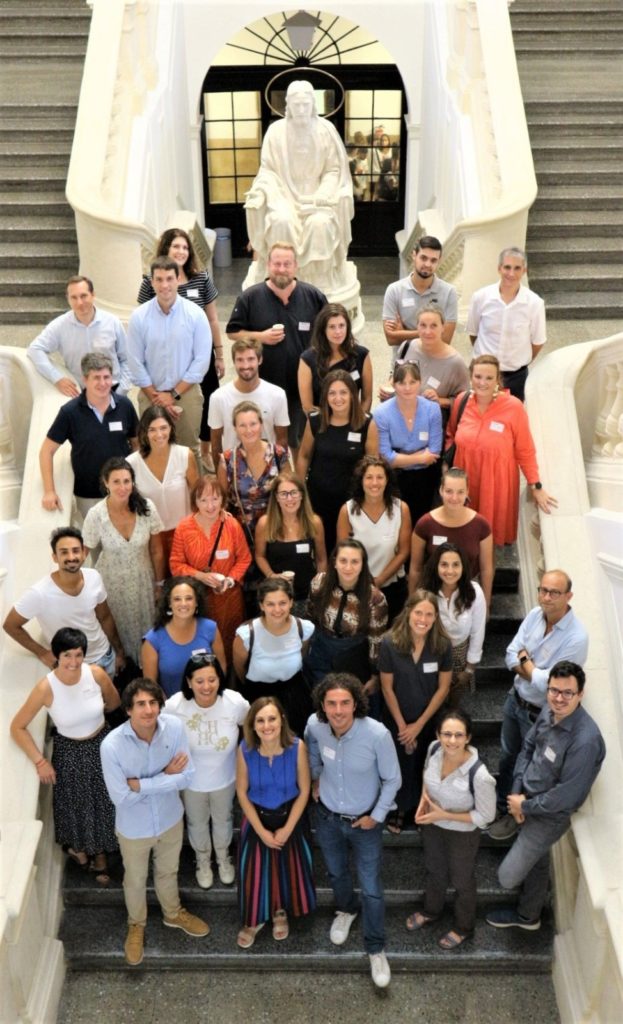FOODRUS holds first meeting of all the European partners of the project
From 12 to 14 September, researchers from the European project FOODRUS met at the University of Deusto, on the Bilbao campus, which aims to develop circular solutions to limit food loss and waste within the food chain
It is the first time that all the partners have met in person and served to report on the progress of the project and to discuss how to promote the impact of innovative solutions, which will take place over 42 months and which the University of Deusto coordinates, through of an interdisciplinary team of researchers from the Faculty of Engineering, Law and Health Sciences, led by Ainhoa Alonso (main IP) and Deitze Otaduy (project director). Laura Vázquez, PhD researcher, has participated from BCC Innovation, coordinator of the sensory analysis area, and Cinta Lomba, senior researcher in the sustainability area.
“The proposed solutions will allow the training and involvement of all the actors of the local food system (from the field to the final consumers, as well as the public administration, waste managers, SMEs and financial organizations), creating a sense of community and alliance of actors to address the challenge of food loss and waste”.
Ainhoa Alonso P.Hd.(coordinator of the FOODRUS project)
Read here all the information about the project.
A strategy to reduce food loss

FOODRUS is a project financed with European funds, within the framework of the Research and Innovation program “Horizon 2020”, with the aim of limiting food loss and waste, through the creation of a circular and collaborative food system, across nine regions of Europe. To achieve this goal, 23 solutions will be tested through collaboration and innovation, including technological, social, organizational, and physical. These solutions will be executed along three value chains, focused on three specific types of food in Europe:
A cross-regional Spanish pilot focused on vegetables and prepared salads.
Slovakian pilot analyzing the bread value chain.
Danish pilot concentrated on meat and fish.
For this, the project has the participation of 29 collaborators from 10 countries and from different types of organizations, such as companies, academic and research institutions, among which is BCC Innovation, participating in work package 2 (WP2) “Stakeholders empowerment”, being responsible for the design of the social program for the pilots, which includes citizen science actions. In addition, it has incorporated the concept of “Living Labs” for pilots. The objective is to actively involve all the relevant agents in the value chain to guarantee the proper development of the project and maximize its impact on the environment.
For more updated information on the development and progress of the project read here


